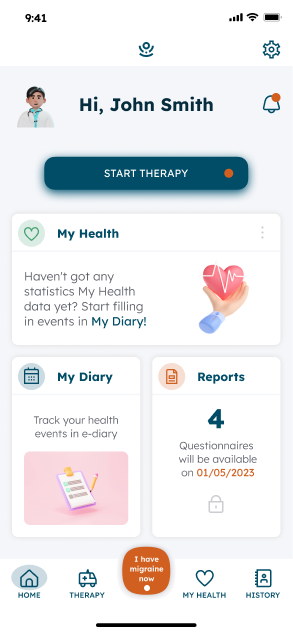Platform Project
Better Migraine research and care in resource constrained settings

Addressing the Challenge of Chronic Migraine
Chronic migraine affects approximately 2% of the world’s population. The World Health Organization classifies severe migraine attacks as among the most disabling invisible illnesses. Migraine affects three times as many women as men. The direct and indirect costs of Chronic Migraine are significant at €95Bn to the EU. Treatments start with pharmaceutical drugs, botox and nerve blockers which can be effective but often are expensive and have undesirable effects. Neurostimulation products that deliver electrical pulses have been up to 80% effective but are designed for the back, not the neck which results in high rates of surgical revisions. This leaves the chronic migraine population severely underserved. Our ambition is to increase accessibility to treatment by reducing the cost and risk of associated medical interventions. TARA develops 4 digital solutions that identify potential triggers and patterns to predict migraine episodes with higher accuracy. OPORA Health functions as a comprehensive health data repository, accessible to researchers. This access facilitates the discovery of nuanced patterns and insights into the intricate nature of migraine conditions. The ultimate objective is to refine and tailor treatment approaches, thereby augmenting the effectiveness of decision support systems in patient care. This innovative approach exemplifies the commitment to advancing healthcare through data-driven strategies, ensuring more personalised and effective treatment modalities for migraine sufferers. OPORA Health works together with patients and carers, as well as other healthcare professionals, to develop tools for delivering personalised treatments based on patient data collected via smartphone apps. This could help improve compliance with treatment plans by tailoring them according to each individual’s needs and circumstances. Personalised medicine for migraine is based on the identification of early markers that indicate who, when and how will be affected by migraine. The researchers want to use biomarkers to identify a single or combination of factors that are suitable for early diagnosis, but also for the determination of the patient’s disease stage and progression.


This project has received funding from the European Union’s Horizon Europe research and innovation programme under grant agreement No. 101057524.
